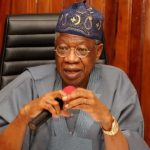By Buhari Abba
Kano has always been known as a center of trade, industry, and enterprise. From its historic markets to its present-day role as Northern Nigeria’s commercial heartbeat, the state has long been a magnet for business. But in recent years, global competition, changing economic realities, and local challenges have highlighted the need for a fresh approach to investment.
That is where the Kano State Investment Promotion Agency (KAN-INVEST) comes in. The agency was established to reposition Kano as a leading destination for both local and foreign investors.
Under the leadership of its Director General, Dr. Muhammad Nazir Halliru, KAN-INVEST has become the state’s one-stop shop for investment facilitation. It offers services ranging from project promotion and advisory support to joint equity partnerships, property development, and financing for entrepreneurs with viable ideas.
Unlike the Kano State Investment and Properties Limited (KSIP), which focused mainly on property development and small-scale financing, KAN-INVEST has a broader mandate: to attract, coordinate, and manage investments that will drive Kano’s economic transformation. Both agencies are distinct, with KAN-INVEST complementing rather than replacing KSIP.
Dr. Halliru brings vast experience to the role. An economist with an advanced degree in econometrics, he specializes in applying geospatial data for development planning. Over the years, he has used this expertise in health, education, agriculture, and finance, working with government and non-government partners to shape policies through evidence-based decisions.
Before becoming DG of KAN-INVEST, he served as Special Adviser to the Governor on Budget and Economic Planning. He also worked with GRID3 Inc. and Columbia University in the United States, where he applied geospatial data to support national planning in population mapping, education, food security, and health services. His work with development partners such as the Gates Foundation, UNFPA, World Bank, AfDB, WHO, UNICEF, and FCDO further strengthened his reputation as a data-driven policymaker.
Halliru also served on several national technical committees, contributing to Nigeria’s Medium-Term Development Plan (2021–2025), Agenda 2050, and the Presidential National Poverty Reduction with Growth Strategy (NPRGS). He co-chaired the team that established the Alternate School Programme (ASP) under the National Social Investment Programme.
Speaking on the agency’s progress, Dr. Halliru revealed that KAN-INVEST has already attracted more than $22 million in foreign direct investment, mainly in renewable energy projects such as Compressed Natural Gas (CNG) and Liquefied Natural Gas (LNG). He added that the agency will soon launch a multi-sectoral investment plan to draw $10 billion into Kano’s economy over the next five years. The plan will focus on energy, agriculture, health, education, transportation, and trade—sectors he described as the “pillars of Kano’s sustainable growth.”
To support investors, the agency provides feasibility studies, advisory services, and liaison with state and federal bodies. It also helps investors find partners, access financing, and secure land for projects. Incentives such as tax waivers and simplified processes are being introduced to build investor confidence. Under his leadership, discussions are ongoing with entrepreneurs from the UK, China, the US, and India, further strengthening Kano’s global investment appeal.
For local businesses, the new strategy means better infrastructure, easier access to finance, and entry into wider markets. Small and medium enterprises—already the backbone of Kano’s economy—are expected to benefit most. The agency is also targeting artisans, market women, and small entrepreneurs to ensure that growth trickles down to everyday people.
Job creation remains a key part of the agency’s agenda. Under Nazir’s leadership, programmes such as waste-to-wealth, expansion of industrial clusters, and investments in renewable energy are expected to create thousands of jobs. Women and youth will also be empowered through loan schemes, financial technology services, and export training programmes.
With MSMEs contributing more than 60 percent of Kano’s economy and employing over two million people, analysts believe these efforts could significantly reduce unemployment.
As KAN-INVEST prepares to roll out its five-year plan, optimism is rising among both local and foreign investors. With incentives, reforms, and strong political backing, Kano is working to reclaim its historic place as a centre of commerce in West Africa under the leadership of Dr. Muhammad Nazir Halliru.
“Our goal is simple,” Dr. Halliru said. “We want to make Kano the investment capital of Northern Nigeria and a model for sustainable economic development.”






